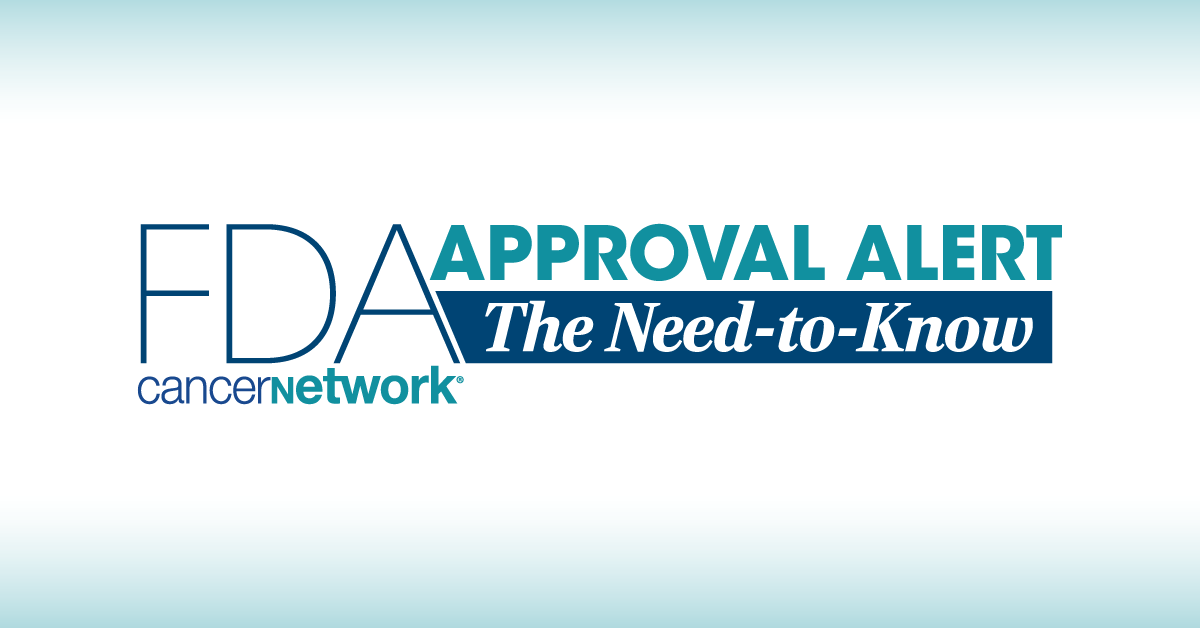FDA OKs Larotrectinib in Adult and Pediatric NTRK+ Tumor Populations
Data from the LOXO-TRK-14001, SCOUT, and NAVIGATE trials support the full approval of larotrectinib in NTRK gene fusion-positive tumors.
The FDA based its approval on findings from the LOXO-TRK-14001 (NCT02122913), SCOUT (NCT02637687), and NAVIGATE (NCT02576431) trials.

The FDA has granted full approval status to the first-in-class TRK inhibitor larotrectinib (Vitrakvi) as a treatment for pediatric and adult patients with solid tumors harboring NTRK gene fusions, according to a press release from the developer, Bayer.1
Specifically, the agent is indicated for use in patients with an NTRK gene fusion without a known acquired resistance mutation, those with metastatic disease or tumors where surgical resection is likely to cause severe morbidity, and those with no satisfactory alternative options or progression on prior therapy. The FDA originally granted accelerated approval to larotrectinib in November 2018.2
The FDA based its approval on a pooled analysis on findings from the open-label, single-arm LOXO-TRK-14001 (NCT02122913), SCOUT (NCT02637687), and NAVIGATE trials (NCT02576431). The analysis included 339 pediatric and adult patients with metastatic or unresectable NTRK gene fusion-positive solid tumors.
Across all patients, larotrectinib produced an overall response rate (ORR) of 60% (95% CI, 55%-65%), which included complete responses in 24% and partial responses in 36%. Of those with a complete response, 5% had a pathological complete response.
Patients whose post-operative pathologic assessments showed no viable tumor cells and negative margins experienced pathological complete responses provided that no other disease sites were observed. Additionally, the median duration of response (DOR) was 43.3 months (95% CI, 32.5-not evaluable).
"This first full approval of an NTRK inhibitor by the FDA represents the culmination of research and dedication by the Bayer team. We are proud to deliver on our promise for patients with this significant step forward, providing a treatment option for pediatric and adult patients living with NTRK gene fusion-positive cancers," Chandra Goda, Executive Director, US larotrectinib Brand Lead at Bayer, stated in the press release.1 "This milestone reinforces Bayer's commitment to delivering innovative solutions that address the unique needs of patients and their families."
The most common adverse effects (AEs) included increased aspartate aminotransferase, increased alanine aminotransferase, musculoskeletal pain, hypoalbuminemia, leukopenia, lymphopenia, fatigue, vomiting, cough, constipation, and pyrexia, among others. Serious AEs included central nervous system issues, bone fractures, and liver problems.
"The full approval of [larotrectinib] by the FDA is a welcome step forward, solidifying its place as a treatment option for patients with NTRK gene fusion-positive cancers. "This milestone not only benefits patients today but also paves the way for further advancements in NTRK gene therapies in the future," Andrea Ferris, president and chief executive officer at LUNGevity Foundation, concluded.1
References
- U.S FDA grants full approval of VTRAKVI (larotrectinib) for adult and pediatric patients with NTRK gene fusion-positive solid tumors. News release. Bayer. April 10, 2025. Accessed April 10, 2025. https://tinyurl.com/25ad4ra2
- FDA approves larotrectinib for solid tumors with NTRK gene fusions. News release. FDA. November 26, 2018. Accessed April 10, 2025. https://tinyurl.com/bdhzpdm6
How Supportive Care Methods Can Improve Oncology Outcomes
Experts discussed supportive care and why it should be integrated into standard oncology care.